In the last few years, the Security Council has imposed highly controversial sanctions on both individuals and States, some of which can be considered to violate international law. This book argues that the law of international responsibility allows States to disobey these obligations when they would result in a serious violation of human rights.
This book examines how the United Nations Security Council, in exercising its power to impose binding non-forcible measures ('sanctions') under Article 41 of the UN Charter, may violate international law. The Council may overstep limits on its power imposed by the UN Chater itself and by general international law. Such acts may engage the international responsibility of the United Nations, the organization of which the Security Council is an organ. Disobeying the Security Council discusses how and by whom the responsibility of the UN for unlawful Security Council sanctions can be determined; in other words, how the UN can be held to account for Security Council excesses.
Hinweis: Dieser Artikel kann nur an eine deutsche Lieferadresse ausgeliefert werden.
This book examines how the United Nations Security Council, in exercising its power to impose binding non-forcible measures ('sanctions') under Article 41 of the UN Charter, may violate international law. The Council may overstep limits on its power imposed by the UN Chater itself and by general international law. Such acts may engage the international responsibility of the United Nations, the organization of which the Security Council is an organ. Disobeying the Security Council discusses how and by whom the responsibility of the UN for unlawful Security Council sanctions can be determined; in other words, how the UN can be held to account for Security Council excesses.
Hinweis: Dieser Artikel kann nur an eine deutsche Lieferadresse ausgeliefert werden.

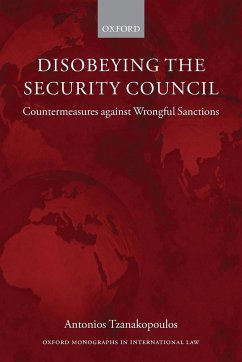
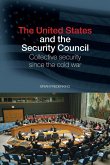
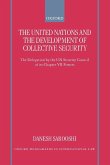

![The St. Albans Raid [microform]: Investigation by the Police Committee of the City Council of Montreal Into the Charges Preferred by Councillor B. Dev The St. Albans Raid [microform]: Investigation by the Police Committee of the City Council of Montreal Into the Charges Preferred by Councillor B. Dev](https://bilder.buecher.de/produkte/65/65622/65622738m.jpg)
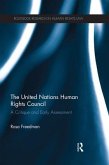
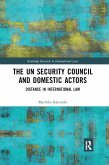
![Agenda for the Quinquennial Sessions of the International Council of Women, to Be Held at Toronto, Canada, June, 1909 [microform] Agenda for the Quinquennial Sessions of the International Council of Women, to Be Held at Toronto, Canada, June, 1909 [microform]](https://bilder.buecher.de/produkte/65/65591/65591403m.jpg)